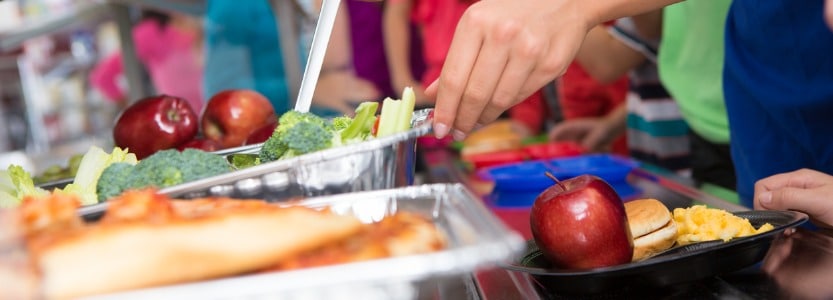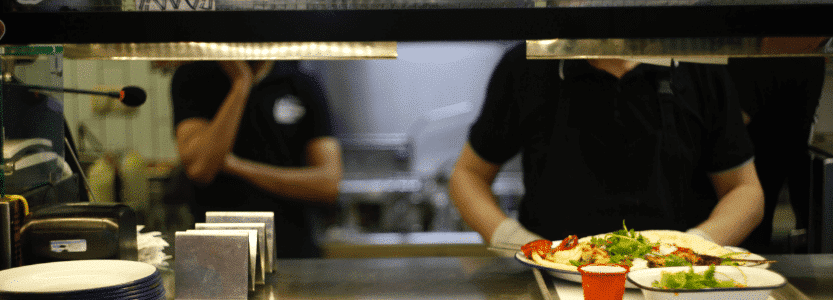Children Reject Free School Meals Because of Stigma
Updated 25th November 2022 | 4 min read Published 2nd November 2020
Unlike animals whose behaviour is decided by their biological make-up, we humans depend on social experience to learn the characteristics of society to survive. Without social experience, we are more of an object than a person. Our need to socialise makes us crave for group acceptance, which in turn affects the choices we make.
In the 1950s, social psychologist Solomon Asch, conducted a trial to see if people would conform to something that is obviously wrong just to be part of the group. His experiment involved testing participants and asking them to say their answers out loud.
Asch aimed to discover if people’s choices could be influenced by their peers. He expected most participants would stick to what they know is the right answer, but the result showed differently. He found that 75% of people conformed to the wrong answer at least once when surrounded by individuals voicing the wrong answer.
Although Asch did the experiment five decades ago, our need to conform remains strong as ever. It is particularly stronger in children and adolescence, thus making peer pressure an influential element of life in schools. And for children in England living in poverty, this instinctive need to be part of a group is causing major problems. .
Children rather go hungry than risk embarrassment
Having to pay for meals using a free school meal voucher, a system that many schools still use today, makes children feel different. It makes them feel alone in a room full of people. It makes them feel vulnerable.
Unfortunately, other children tend to pick on kids who are different and vulnerable. For kids who are the subject of cruel teasing, life can be unpleasant and downright miserable.
Consequently, parents are spending money they can ill afford, and send children to school with a packed lunch to prevent their child becoming a target of bullying. And if parents do decide to take their free school meal vouchers, older children take matters into their hand and refuse to have the meal, as with children in Wales.
In 2011, Wales Assembly Members found that some children in secondary schools would rather miss lunch than use their free meal voucher and risk embarrassment in front of their friends.
The problem doesn’t just affect a few children. It is more prevalent. In April 2012, in its ‘Fair and Square: Free School Meals for all Children in Poverty’ report, The Children’s Society revealed that 500,000 of the 2.2 million children living in poverty do not take up their free school meals due partly to fear of being teased or bullied.
Parents who were interviewed for the report said that their children experienced bullying because they were getting free school meals. Those who aren’t bullied are embarrassed for being different.
As a result, many families living in poverty are missing out on £400 of government help. Schools are also losing £600 for every pupil entitled to a pupil premium but doesn’t claim it.
In addition, the Children’s Society also claimed that the problem is worse in secondary schools. This is because most primary schools asked parents to pay direct to the schools or use cashless catering systems, thus children don’t know who gets free school meals, helping to remove the stigma.
Anonymity takes stigma off free school meals
In September 2012, Angus Holford, a PhD student from the Institute of Social and Economic Research, University of Essex, published a paper that backed up the Children’s Society’s earlier report.
In ‘Take up of Free School Meals: Peer Effect and Price Effects’, Holford studied every primary school in Scotland, including those that are part of the Scottish government’ experiment, which offered free school meals to all primary children in areas identified as highly deprived, and schools that allowed parents to prepay for the meals or received the benefit online.
At the end of his research, Holford found that segregation in the school hall at lunchtime and the shame of receiving free school meals are the major causes that stop parents from claiming free school meals.
But more importantly, he also found that preserving the anonymity of the children who are on free school dinners has an immediate impact on the take up of free school meals (FSM).
Cashless catering system is the best option
In both studies, it is clear that an anonymised payment system like prepaid meals or a cashless catering solution offered by BioStore FasTrak, is the best option in keeping the identity of children on benefits anonymous.
Of parents interviewed by the Children Society, those who are already using the cashless catering system highly recommend it. For them, the system is a godsend.
Related news stories:
Guardian: Thousands of pupils shamed out of free school meals
Poor children shun free school meals for stigma-free sandwich








